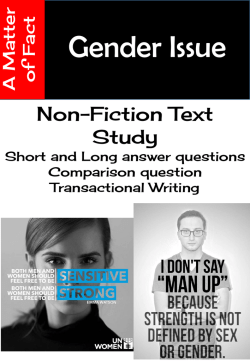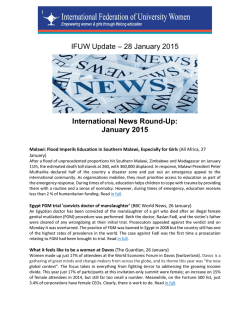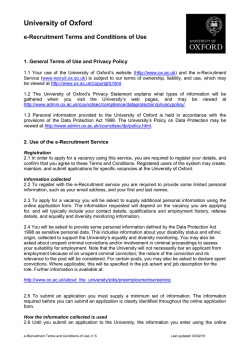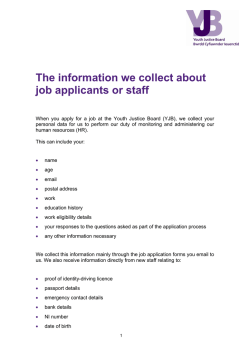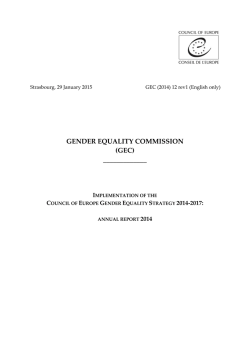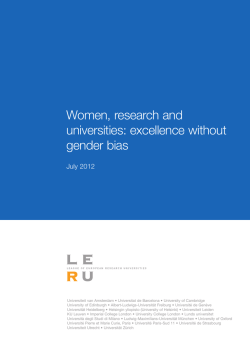
Equality Act 2010 (Specific Duty) Regulations 2011
Equality Act 2010 (Specific Duty) Regulations 2011, section 149: How HMRC complies with its public sector equality duties. 31 January 2015 Contents 1. About HMRC ....................................................................................................................................3 1.1 General ...........................................................................................................................................3 1.2. Background ....................................................................................................................................3 1.3. HMRC’s customer service ..............................................................................................................5 1.4. How HMRC helps customers who need extra support .................................................................6 1.5. How our customer service and policy work complies with Section 149 of the Equality Act ........7 2. Procurement ........................................................................................................................................9 3. Specific customer activity by protected characteristic.....................................................................10 3.1. Age ...............................................................................................................................................10 3.2. Disability ......................................................................................................................................10 3.3. Marriage and civil partnership ....................................................................................................12 3.4. Pregnancy and maternity ............................................................................................................12 3.5. Race .............................................................................................................................................12 3.6. Religion and belief .......................................................................................................................13 3.7. Sex/Gender ..................................................................................................................................13 1 3.8. Sexual orientation and transgender ............................................................................................13 4. Research .............................................................................................................................................14 About this document This document is the publication of equality information required by Regulation 2 of the Equality Act Specific Duty Regulations (SI 2011/2260). It shows how HMRC complies with the public sector equality duty in section 149 Equality Act 2010 in relation to its customer service and policy administration activities. It complements the HMRC Workforce Diversity Data. The report for 2013-14 can be accessed here https://www.gov.uk/government/uploads/system/uploads/attachment_data/file/285167 /130127_informationdraftv29.pdf The regulations require all public bodies to: eliminate unlawful discrimination, harassment and victimisation advance equality of opportunity foster good relations between people who share a protected characteristic and those who don’t. Promoting equality of opportunity means public bodies have to: remove or minimise disadvantages for groups of people take steps to meet the needs of protected groups of people encourage all groups of people to participate in public life or other activity in situations where their participation is low. Fostering good relations means public bodies need to tackle prejudice and promote understanding between groups of people. HMRC makes sure that equality issues are given due consideration. In practice this involves ensuring that equality has been considered when a decision is made, a policy developed or a change implemented, including an equality analysis if appropriate. 2 1. About HMRC 1.1 General 1.1.1.HMRC is careful to ensure that it meets its responsibilities under the Equality Act 2010, including the need to recognise the impact that its decisions have on nine protected groups: gender, race, disability, religion and other beliefs, gender reassignment, age, pregnancy and maternity, sexual orientation, and for the purposes of the requirement not to discriminate, marriage and civil partnership. 1.1.2 To inform the decisions, where appropriate, assessments of the likely equalities impacts of proposed policy measures are made. These assessments are published by HM Treasury. 1.2 Background 1.2.1. HMRC is the UK’s tax and payments authority. We are responsible for making sure that the money is available to fund the UK’s public services and for helping families and individuals with targeted financial support. 1.2.2. We were established by Act of Parliament in 2005 as a new department replacing the Inland Revenue and HM Customs and Excise. 1.2.3. We are a non-ministerial Department established by the Commissioners for Revenue and Customs Act (CRCA) 2005. The CRCA gives responsibility for the administration of the tax system to Commissioners appointed by HM the Queen. The Commissioners are drawn from the Department’s top management. 1.2.4. We report to Parliament through our Treasury minister who oversees our spending. 1.2.5. The Treasury is responsible for strategic tax policy and policy development. We are responsible for policy maintenance and implementation. This arrangement for policy making is known as the ‘policy partnership’. 1.2.6. We collect and administer: Direct taxes Capital Gains Tax Corporation Tax income tax Inheritance Tax National Insurance Contributions Petroleum Revenue Tax Stamp Duty Land Tax Stamp Duty Reserve Tax 3 Indirect taxes Customs duties Environmental taxes (Climate Change Levy, Aggregates Levy, Landfill Tax and Air Passenger Duty) Excise duties Insurance Premium Tax Stamp Duty VAT 1.2.7. We pay and administer: Child Benefit Tax credits 1.2.8. We protect UK citizens by enforcing and administering: compliance with money laundering regulations National Minimum Wage enforcement recovery of student loans. 1.2.9. We also work in partnership with the following agencies: • Border Force – have a front line role in administering customs duties at the borders • Crown Prosecution Service – is the prosecuting authority for criminal prosecutions • Department for Work and Pensions – jointly run the National Insurance Contributions system • Valuation Office Agency – an independent agency of HMRC providing valuation services primarily for council tax and rating purposes that are administered by local authorities. 1.2.10. We collected record tax revenues of £505.8 billion in 2013 -14. 1.2.11. Our customers include the vast majority of individuals and businesses in the UK and a large number of non-UK nationals who pay UK taxes. That also includes legal entities such as limited companies, partnerships, charities and trusts. 1.2.12. Our customers have a diverse and complex range of requirements. Our activities range from supporting people to claim the right amount of tax credits and benefits and pay the right amount of tax, to advice on complex financial transactions. We also ensure compliance through enforcement activity against those who bend or break the rules of the tax and benefits system, or who owe money as debt. 1.2.13. The largest taxes we are responsible for in terms of both customer impact and yield are income tax and National Insurance Contributions, which are collected primarily through the PAYE system and from VAT. 1.2.14. Equality and diversity awareness is promoted to staff through a long standing strategy. Equality and diversity training is mandatory for all staff. Additional training is available for managers. This includes mandatory unconscious bias training. 4 1.3 HMRC’s customer service 1.3.1 We’re putting customers at the heart of everything that we do. We are looking across all of our work in order to present all of our customers with a seamless, joined-up, more highlypersonalised service that is increasingly delivered in real time and through online channels. 1.3.2. We will design all of our services around our customers, instead of the individual taxes they pay or the Department’s own internal structure. Everything that we will do will start with what we know about our customers, and how we can make it straightforward for them to register, file and pay the right tax at the right time. We’re going to design services so they help customers get things right as early as possible in their dealings with the tax system, instead of just correcting errors or catching attempts to cheat the system afterwards — effectively creating services with compliance built into them. 1.3.3. We are moving to a ‘once and done’ approach — resolving issues in one go, so customers don’t need to keep contacting us to chase responses or talk to different parts of our organisation. 1.3.4. The public increasingly want things to be delivered through the immediacy and convenience of a digital channel. We need to reflect these changes in how we deliver services to our customers too. Our aim is to provide web that can be accessed from PCs, laptops, tablets and smartphones, which are so straightforward and convenient that everyone who has a choice will want to use them. 1.3.5 Ultimately, we want all personal taxpayers and businesses to have access to a personal online tax account, where they'll be able to file, pay and make the changes that they currently do by post and by phone - across all of their taxes, in a single place. In the months and years to come, customers will increasingly be able to get what they need from us online, or if they do need to contact us they will receive a fuller service covering the full range of taxes they pay. 1.3.6 We'll still offer services through other channels for those who really need them, including over the phone and through face-to-face visits. In many ways, this is the sort of thing that we’re already seeing with our Needs Extra Support service — where teams of telephone advisors can spend more time with customers who need extra help. They don’t work on single taxes or rigidly follow scripts; they link up with other parts of HMRC so they can help customers with everything from debt management to Child Benefit — joining things up so the customer doesn’t have to. What’s more, they can also book face-to-face appointments with mobile advisors who can arrange local, and even home visits, to those who really need it — offering a personalised service that is tailored to a customer’s individual needs. 1.3.7 We also know that not everyone can use computers, which is why we're working with charities and the voluntary sector to make sure that they (or families and friends) can do things on their behalf. 5 1.4 How HMRC helps customers who need extra support Customers who need extra support 1.4.1. We announced plans introducing a new service to support customers who need extra help get their taxes and entitlements right in February 2014. Following a transition period our network of Enquiry Centres across the UK were closed, making the new service fully operational. 1.4.2. The new Needs Extra Support (NES) service was launched in May 2014. By December it had resolved more than 47,000 customer calls. 1.4.3. The service will be fully evaluated after operating for 12 months. Supporting unpaid agents 1.4.4. We value the help that unpaid agents, including friends and family members and the voluntary and community sector can give to vulnerable customers. We introduced a new ‘deemed consent’ process to make it easier for friends and family members to access our contact centres about their tax affairs in November 2013. A year later this was extended to include our National Insurance contact centres and we introduced a new online service for ‘trusted helpers’ to be able to act for friends and family. We support voluntary sector organisations through grant funding and through our Voluntary Sector Taxes Resolution Service. We are also developing an online authorisation service for agents which will include voluntary sector organisations. Grant funding 1.4.5. We have a grant funding programme that provides £3 million a year for supporting voluntary sector organisations to assist customers with their tax and benefit obligations in 2013-14 and 2014-15. We fund a number of projects that deal directly with equality issues and include voluntary organisations such as Gingerbread, the Royal National Institute for the Blind, Tax Help, TaxAid and the Low Incomes Tax Reform Group. More details are given below in section 3. Full details of the grant funding programme are available here. Help and advice 1.4.6. We provide extensive online help and support for customers and also through our website, contact centres, and NES service. 1.4.7. All our customers can appoint someone to deal with us on their behalf for a variety of reasons including illness, disability, or because English is not their first language. We are also developing our ‘Friends and Family’ service to allow up to five other people to access an account. 1.4.8. We have a service for bereaved customers, developed with colleagues across HMRC, together with other government departments. 6 1.5. How our customer service and policy work complies with Section 149 of the Equality Act Customer equality team 1.5.1. Our Central Customer directorate has a dedicated customer equality team that has direct access to HMRC’s leadership and decision making powers. The team works with a wide range of external stakeholders, listens to concerns, and acts within the department to ensure that HMRC complies with equality law, provides the best possible service for people in protected equality groups, and drives forward improvements in customer service. 1.5.2. The team builds its understanding of equality issues affecting customers from a number of sources. It has strong links with the customer complaints policy team to ensure that all complaints where discrimination is alleged are analysed. It also has links with appeals and internal review policy and identifies and advises on discrimination issues relating to appeals. The team also runs a bi-annual Disabled Customers Consultation Group with a number of external stakeholder groups and host a twice-yearly mental health consultation forum to discuss issues faced by customers with mental health conditions. 1.5.3. The team also liaises with other government departments including HM Treasury, the Department for Work and Pensions and the Government Equalities Office. Community involvement 1.5.4. We actively promote volunteering at HMRC and there are many opportunities for staff to become involved in their local or other communities. Volunteering activities balance community impact with business benefits such as enhanced customer understanding, and personal development opportunities. Due regard 1.5.5. The Equality Act 2010 requires public sector decision makers to have ’due regard‘ to the equality objectives to eliminate discrimination, advance equality of opportunity and foster good relations as set out in Section 149. 1.5.6. We provide detailed guidance and support to ensure that due regard is satisfied for both policy and operational decisions. Decision makers can also get advice from the customer equality team, which also provides a quality control function for equality analysis and decision making. 1.5.7. Where appropriate, we produce equality impact statements and analysis for external consultations. All full equality impact assessments are published. Departmental diversity champions 1.5.8. We have Board-level diversity champions for protected characteristic-based equality groups. Each champion works to promote staff equality and also has a role in promoting customer equality. 7 Disability equality recognition 1.5.9. We won a number of prestigious awards recognising HMRC's journey to achieving disability equality for prospective and existing employees in 2014. We won a Recruitment Industry Disability Initiative Award in the 'Overall Candidate Experience' category for how we recruit disabled people. The award recognised our efforts in making the recruitment process a positive experience for disabled applicants and for the work we put into supporting them once they were employed. 1.5.10. The Business Disability Forum (BDF) named us winners of two Disability-smart awards (the Disability Champion of the Year and Information, Communication and Technology awards) recognising our best practice in providing assistive technology services to disabled employees. Our in-house specialists work in collaboration with our IT suppliers as a single virtual team, reflecting an understanding of individual requirements and tailoring standard practices. The Disability-smart awards recognise organisations who are leading the way in meeting the BDF's recognised disability standard. Diversity networks 1.5.11. We have a range of internal diversity networks across protected characteristics. For example, our employee Lesbian, Gay, Bisexual and Transgender network. Budget process 1.5.12. In partnership with HM Treasury, we advise ministers on measures that are included in the annual Budget cycle. We help to ensure that equality considerations are taken into account as part of the policy decision making process and consideration is given to their impacts. 1.5.13. All Budget tax measures are published with a short summary of equality impacts that are shown in Tax Impact Information Notices published at the time of the Budget and Autumn Statement. Each measure is monitored by the customer equality team and advice on identifying and mitigating impacts is provided. 1.5.14. Information about completing equality impact assessments is available on the intranet to all staff. Organisation change programmes 1.5.15. All organisation change programmes and projects consider equality identifying customer impacts. We work with external stakeholders to provide greater insight into these, identifying alternative approaches where appropriate. All change projects have equality on their risk registers and these are used as a way of ensuring that appropriate and proportionate due regard is given to equality issues. The customer equality team gives advice on identifying equalities impacts and action that might be taken to minimise the impact of these. 8 2. Procurement 2.1.1. We are committed to ensuring responsible practices in the procurement of buildings, goods, works and services. A non-discrimination clause is built into all contracts with suppliers. We have also produced a suppliers’ charter (in partnership with the Home Office) as part of our sustainable procurement strategy (http://webarchive.nationalarchives.gov.uk/+/http://www.hmrc.gov.uk/about/corporateresponsibility/sustainable-proc-strategy.htm) which sets out a range of objectives, including equality. Suppliers are encouraged to: • ensure they have effective equality and diversity policies in place • ensure all staff have equality and diversity awareness training • ensure they have a clear equality and diversity governance structure • complete self-assessments and commit to completion of an improvement plan according to the self-assessment results • communicate this agenda and their requirements throughout their supply chain • ensure they apply Government and HMRC principles and policies on equality when acting on their behalf. 9 3. Specific customer activity by protected characteristic 3.1. Age 3.1.1. Edward Troup, Tax Assurance Commissioner and second Permanent Secretary, is our departmental champion for age equality. 3.1.2. Our customers cover all age groups. 3.1.3. We have grant funded the voluntary and community organisation Tax Help for Older People to provide advice and support for older people through their nationwide network of voluntary advisors. Our funding has also enabled them to train more advisors and to develop the capacity of other voluntary and community sector organisations to help older people. 3.1.4. Our additional support for older people includes extensive guidance on our website. It can be found here: https://www.gov.uk/tax-national-insurance-after-state-pension-age 3.1.5. Our staff are very active in supporting their local communities through volunteering, for example we run events to help our digitally excluded customers go on-line for the first time, we work with the National Mentoring Consortium to mentor undergraduate BAME students, and we deliver workshops with the Prince's Trust to support young people with CV writing and interview skills. We will shortly be launching a new tax education programme for 14 to 17 year olds to help them understand more about their tax responsibilities and the importance of tax morality. 3.1.6. A website providing advice to students has been developed using HMRC funding by the Low Incomes Tax Reform Group (LITRG). 3.2. Disability General 3.2.1. Mark Dearnley, Chief Digital and Information Officer, is our departmental champion for disability equality. 3.2.2. There are more than ten million disabled people in the UK who are nearly all our customers. We are committed to providing the best possible customer service for all customers, including disabled people. 3.2.3. A computer-based learning product called ’Just Ask’, was created for our staff to improve awareness of disabled customer needs. There is also a Civil Service wide e-learning package, ‘Supporting Vulnerable People’, available to all staff. 3.2.4. We have a Disabled Customer Consultation Group (DCCG) with representatives from a wide range of disability groups. It meets twice a year and we have regular informal contact. 3.2.5. We funded LITRG to develop a website that helps disabled people receiving direct payments fulfil their PAYE obligations as an employer. LITRG also provide a helpline. 3.2.6. We also funded an RNIB project that provides advice and help on HMRC issues to newly blind and partially-sighted people and family intermediaries from across the UK. 10 Website accessibility 3.2.7. We have completed moving our content and services to www.gov.uk. HMRC and other government departments must comply with Government Digital Service (GDS) standards by following their style guide, service manual and design elements when content and services are being built. The services we provide are for the benefit of all UK citizens. No user is excluded on the basis of disability. 3.2.8. GOV.UK content and services meet Level AA of the Web Content Accessibility Guidelines (WCAG) 2.0 and are tested by disabled people, older people, and people who use assistive technologies. GOV.UK is tested to ensure it is compatible with recent versions of the following screen readers: Jaws ZoomText NVDA VoiceOver Window Eyes Supernova screen reader and Magic. We also test for compatibility with: basic operating system screen magnifiers speech recognition software, such as Dragon Naturally Speaking operating system speech packages. 3.2.9. Customers are able to submit paper PAYE returns where they are unable to send online returns, including where this is against their religious beliefs. Visual disability 3.2.10. We have a Visually Impaired Media Unit (VIMU) which provides enhanced product for customers with accessibility needs. Working with colleagues throughout HMRC, VIMU converts HMRC material into formats such as large print, Braille, audio or text on CD, and email. This ensures that those with visual problems or other needs can receive information from us in a format that they can read. 3.2.11. We are also modernising our range of digital products to enhance accessibility. In particular, old style pdf forms are being phased out and replaced by more accessible products. Deaf and hard of hearing 3.2.12. We carried out research with deaf and hard of hearing customers in 2012. The research report can he found here: https://www.gov.uk/government/publications/contactinghmrc-deaf-and-hard-of-hearing-customers 3.2.13. We offer text phones in all call centres and text relay calls. We are also planning to trial a video relay service to enhance access for British Sign Language (BSL) customers. BSL 11 interpreters can be provided by appointment for face to face meetings and are also able to contact telephone helplines as long as the customer is present. 3.2.14. We also have two videos on YouTube aimed at BSL users. They set out the services we offer for deaf and hard of hearing customers and explain tax responsibilities if they want to start a new business. Mental health 3.2.15. A sub-group of the Disabled Customers Consultation Group deals with mental health issues on a regular basis. As a result, debt managers have received guidance on mental health issues and a support team established to offer advice about debt collection. This vulnerable customers unit provides guidance and support for staff so they can make reasonable adjustments for customers with mental health problems. The Needs Extra Support team also help customers needing extra support by working closely with voluntary and community organisations. We regularly consult with internal and external stakeholders to improve the support provided to staff so we can, in turn, improve the service we provide to customers with mental health issues. 3.2.16. The Adjudicator, who has responsibility for reviewing complaints made against HMRC, has recognised that although there is more work to do, progress has been made in helping customers with mental health issues. Support in the tax system 3.2.17. We administer certain tax reliefs and benefits specifically aimed at helping disabled people. Statutory payments 3.2.18. We administer the disability element of working and child tax credits which are available to provide additional help to disabled people and carers. 3.3. Marriage and civil partnership 3.3.1. The tax system ensures that marriage, equal marriage and civil partnership are treated the same. 3.4. Pregnancy and maternity 3.4.1. We support all new mothers by encouraging them to claim Child Benefit. A claim form is included in the ‘bounty pack’ provided to new mothers in hospital. 3.5. Race 3.5.1. Jennie Granger, our director general for enforcement and compliance, is the departmental champion for race equality. 3.5.2. Recognising that language can be a barrier to service for some customers, we offer third party translation services for customers through The Big Word (a global, technology – enabled language solution provider delivering translation and interpreting services) that is available in all our contact centres. Face-to-face translation is also available under The Big Word contract. 3.5.3. We also have a ’Friends and Family translation policy which allows someone else to translate on behalf of a customer not confident enough to talk to our call centres in English. 12 3.5.4. We further support our customer service by providing some written material in other languages. 3.5.5. We have grant funded the Low Incomes Tax Reform Group to develop a plain English guide for new low income migrants. 3.5.6. For Welsh language speakers, we provide all products in Welsh through a Welsh translation team. We are fully compliant with the Welsh Language Act. 3.6. Religion and belief 3.6.1. William Hague, our Chief People Officer, is champion for religion or belief. We take religion and belief into account when it is relevant to customer service. For example, special arrangements exist to allow customers with theological objections to computer based services to use paper instead. 3.6.2. We also administer special Stamp Duty, Capital Gains Tax and Corporation Tax provisions aimed at putting transactions structured along Islamic finance lines on equal footing with traditional finance. Guidance is provided for these and VAT implications of Islamic finance on our website. 3.6.3. We also administer the taxation of charities, many of which are faith-based. 3.7. Sex/Gender 3.7.1. Ruth Owen, our director general for personal tax, is departmental champion for gender equality. 3.7.2. We have grant funded Gingerbread to support disadvantaged lone parent families and to train voluntary sector intermediaries working to help single and vulnerable parents with tax credits and benefits. 3.7.3. We have also grant funded the Child Poverty Action Group to provide training in tax credits, Child Tax Credits and Child Benefit to voluntary and community sector intermediaries. 3.7.4. HMRC administers a range of tax and benefits measures designed to reduce gender inequality. 3.8. Sexual orientation and transgender 3.8.1. Jim Harra, our director general for business tax, is departmental champion for lesbian, gay, bisexual and transgender (LGBT) people. 3.8.2. We have produced a product aimed at providing general tax and tax credits advice for the LGBT community, called ‘Pride 1‘. The Department also raises LGBT awareness via intranet newsletters. 3.8.3. HMRC was ranked at number 27 in the Stonewall index of Top 100 employers for lesbian, gay and bisexual staff in 2015. 13 4. Research 4.1.1. We conduct research into a wide range of customer interactions and preferences. Many of these publications are equality-related, and this research feeds into decision making at both policy and operational levels. 14
© Copyright 2026
